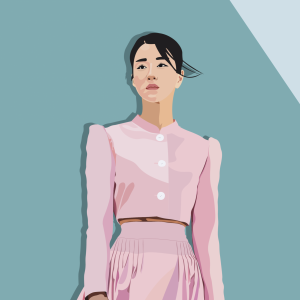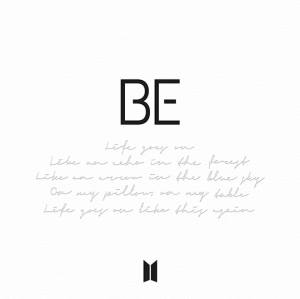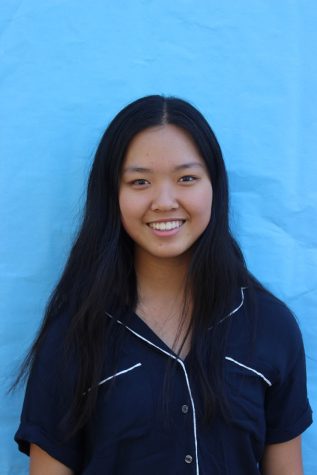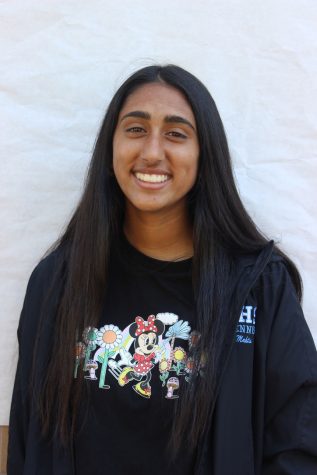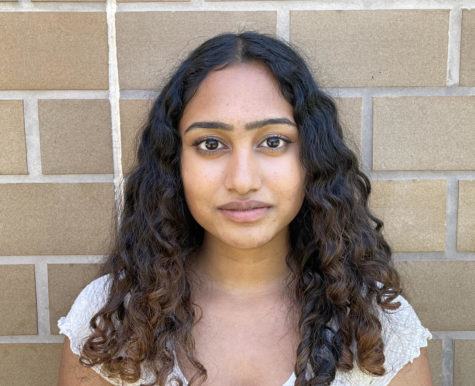“True Beauty” fails to effectively convey the message of self-acceptance
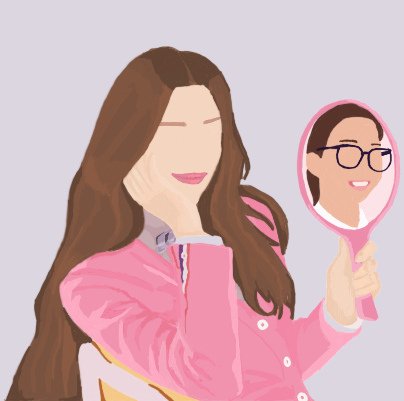
K-drama “True Beauty” tells the story of a teenage girl navigating the pressures of high school, and the journey to self acceptance all at the same time.
March 24, 2021
On Dec. 9, 2020, Webtoon-adapted K-drama “True Beauty” was released, with its last episode airing on Feb. 4, 2021. The show follows Lim Ju-kyung, a high school girl who had been bullied by her family and classmates her whole life for being “ugly.” However, when she masters the art of makeup and transfers to a new school, she begins a new phase of her life, one where she befriends the most popular and beautiful girls of the school, eventually becoming one herself.
While the drama is light-hearted and funny at times, Lim Ju-kyung’s reality of continuously being mistreated due to her physical appearance provides for a gut-wrenching yet inspiring plot, as she continues her journey to find self-love through these hardships. From the very beginning, we are forced to watch Ju-kyung be treated as a servant by her bullies, to even having food be dumped on her just because of how “ugly” she is. This serves as the ultimate breaking point for Ju-kyung, as she then takes any opportunity of transferring to a new school to be her only escape from her living nightmare. This is also where Ju-kyung discovers the power of makeup, and ultimately how she creates her double-persona. While her “ugly” appearance is associated with her love for hard-core metal music and horror comics, her “beautiful” persona is what causes her to be the talk of the class, and even lands her in a love triangle between the two most attractive male students at school.
From the get-go, there is already a clear issue regarding the societal beauty standard, and how this show navigates around that. The show defines Ju-kyung’s “ugly” characteristics with thick-eyebrows, acne-prone skin, and large glasses. And through makeup, the show also defines her “beautiful” characteristics with flawless skin, voluminous hair, and male-attention. And while this may have been done solely for the sake of the plot, it just contributes to the already overly-critical beauty standards that society places on young women, especially teenage girls. What’s worse is that the main audience of the show are teenage girls who are going through hormonal changes to some extent, and now may feel the need to rely on makeup to feel a sense of self-worth just like Lim Ju-kyung had. We’re not saying that the use of makeup is problematic, because it most definitely is not. However, this show portrays natural changes in a woman’s body and face as “ugly” and desperately needed to be covered up, without the main character even attempting to love herself for who she really is underneath in the first place. The show fails to emphasize the importance of recognizing the parts of ourselves that we find beautiful because Ju-Kyung is shown only focusing on how she can change the “ugly” parts.
As the show progresses, her past bullies eventually team up with her best friend Soo-jin (who does it out of jealousy since she likes Suho but he’s dating Ju-kyung) to expose her “ugly” face. The video of her bullies dumping food on her is posted onto the school’s blog along with pictures of her bare face, and everyone including her friends turn their faces on her, accusing her of tricking everyone with her makeup. In a confrontation in the school hallway where a group of girls bashes her barefaced appearance, Ju-kyung stands up for herself, but uses the defense that the popular, handsome Suho, who also happens to be her boyfriend, likes her for who she is despite her appearances. In this way, the show is misleading young people into believing that they can only find self-worth through external sources such as a significant other, rather than through internal validation. For how traumatic the bullying must have been for Ju-Kyung, and more importantly for how far she goes just to appear like this “flawless” and “beautiful” girl to the rest of her classmates, it seems unfair that Ju-Kyung is only seen truly beginning to accept herself when the show is about to conclude.
Essentially, “True Beauty” made it seem as though the journey to self-love and self-acceptance for Lim Ju-Kyung was only possible through male validation from Suho and Seojun. And to an extent, this is understandable given the amount of bullying she went through. However, as a viewer, there are few to no memorable moments in the show where Ju-Kyung is seen independently experiencing and navigating the roller-coaster of self-love and internal beauty. Had the show chosen to incorporate such moments, it would have spread the message that despite how critical the beauty standard is, it is fully possible to overcome society’s judgement without changing who you are as a person, especially when you feel like the world is against you. Yes, friendship and family is essential for support in this journey. However, the show’s prioritization of furthering the publicized and dramatic love-triangle between Ju-Kyung and the two male leads over her personal growth almost makes it seem as though this feat is impossible to overcome without a strong form of male validation, or even social validation. It seems as though the creators of the show knew that a love triangle with two attractive men would sell, and chose to focus primarily on this.
Not only does the show imply that Ju-kyung’s journey to self-love is highly dependent on her popular-because-he’s-mysterious-and-attractive boyfriend, they also don’t address how a teenager should be handling a situation of intense bullying and self-questioning. Seojun, who is secretly in love with Ju-kyung despite the fact that his best friend is dating her, ends up bearing the brunt of the situation, by confronting the original perpetrators of Ju-kyung’s exposure and threatening them to delete the posts. Ideally he would have also brought up the situation to the school’s administration, who could have potentially offered supportive resources or addressed the issue, since the show made it seem as if the whole school had turned their backs to Ju-kyung.
Additionally, Ju-kyung’s mother’s initial reaction to Ju-kyung’s bullying situation was disturbing. Her initial solution was to take her daughter to a plastic surgery consultation, to which there she realized was both alarming and disheartening. Though she eventually apologizes to her daughter for years of name-calling and being blind-sided by her daughter’s situation and her feelings, teenagers who are self-conscious about their appearance could misinterpret that scene to believe that the only way they can be saved from their situation is if they permanently enhance their facial features instead of through self-acceptance. If not to that extent, it may discourage teenagers from reaching out to their loved ones for help in fear that they will receive a response similar to Ju-Kyung’s mother.
Despite presenting mixed messages on how young people should handle bullying situations, the drama itself always left us on the edge of our seat with highly anticipated cliff-hangers, and a catchy soundtrack to accompany any scene throughout the drama. Every actor perfectly embodied their role, from the extremely dominant and justice-seeking older sister Lim Hee-Kyung played by Im Se-mi, to the cold-hearted and cruel bully Park Semi played by Jeon Hye-Won. While essentially all of the supporting and main characters were all spot-on, Cha Eun-Woo, who played male lead Lee Suho, delivered a lackluster performance. He almost always appeared stiff, showing little emotion even in critical moments. Initially, it seemed as if it lent to his character as the distant, quiet but handsome Lee Suho, but as his character was supposed to develop, his acting didn’t follow.
Ultimately, the plot of “True Beauty” had immense potential to convey a positive message to teenagers that self-love surpasses beauty standards, but the show fails to emphasize this importance, instead erroneously focusing on finding strength through external validation.


